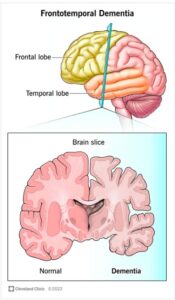Caring for someone with dementia involves a multifaceted approach, addressing various aspects of the condition from daily care to communication and emotional support for both the person with dementia and their caregivers and family.
Understanding dementia impact
Dementia affects the brain, leading to a decline in cognitive abilities, memory loss, confusion, and changes in personality and behaviour. It’s not contagious and is caused by different illnesses that affect specific brain parts. The progression of dementia can vary, and it’s essential to understand that the person’s behaviours are due to the disease, not intentional. In the UK, approximately 85% of people living with dementia reside in England, a figure nearly six times higher than the combined total for Scotland, Wales, and Northern Ireland. It is highly likely that you will know someone with the disease within your lifetime.
Caring for someone with dementia is no easy task. Before you can become a carer for someone with dementia, it is important to first understand the condition and how the disease progresses and when professional dementia homecare in needed.
What are the different types of dementia?
Not everyone is aware that there are different types of dementia, but there are many. The most common is Alzheimer’s disease, which is known by many. You can also encounter Lewy body dementia (protein lumps on the brain) or mixed dementia.
The two types we would like to focus on are frontotemporal and vascular dementia. The reason for this is that they are both very different from each other. They are unlike Alzheimer’s and have a unique set of symptoms.
What are the symptoms?
There are many symptoms of dementia, which differ slightly from person to person. It also depends on how far along they are with the disease and the type of dementia they have. Below is a breakdown of symptoms specific to frontotemporal and vascular dementia.
Specific to frontotemporal dementia
In this particular form of dementia, you can expect muscle weakness and problems with movement. You can also suffer from issues with cognitive function, specific to planning and reasoning. Patients also tend to have more intense mood swings and suffer from depression.
Specific to vascular dementia
Unlike frontotemporal dementia, you can expect fewer mood swings and more indifference. You find it hard to express or feel emotions and have a lack of social awareness. You may be more withdrawn and have trouble understanding others and you may also become obsessive, such as overeating or hoarding.
How to care for someone with frontotemporal dementia
This type of dementia is caused by protein lumps in the brain. The protein comes from the frontal and temporal lobes of the brain, which then builds up. It’s uncertain why this occurs, but it is partly down to genetics (1 in 8 people will get it from a relative with the same condition).
The first step in caring for someone with this type of dementia is understanding. You must understand the challenges these individuals face and how it affects their day-to-day life. Oftentimes individuals can feel as though their independence is being taken away from them, especially as it tends to affect those as young as 45.
If they are acting inappropriately, you need to ensure they are made aware of this and create measures to reduce or stop them from continuing. They may come across as selfish, but you must not take this at face value. Their hygiene may also decline, so you should ensure they wash regularly.

Source: Cleveland Clinic
They may also become impulsive, which is often linked to overeating. Ensure they have access to healthy foods and moderate the amount they eat throughout the day. Loss of motivation is also common, so do make sure to get them involved in activities that are mentally stimulating (such as playing games, puzzles or reading books).
Speech can also be affected with this type of dementia, so they may speak slowly or get the wrong words or sounds. Ensure you are patient with them and also remember to give positive feedback. Let them know that it is okay and that they can take their time if they need to.
In the later stages, you can expect an increase in memory loss and declining mental ability. They may get easily distracted or struggle to make plans. Ensure you are there to support and encourage them but do not take over for them. When it comes to memory, you must use it, or you lose it.
Find out more about our dementia services
Key aspects of dementia
Creating dementia friendly home
Simple modifications can significantly improve safety and comfort. This includes:
- Maximising light – good lighting reduces shadows and improves mobility
- Minimising clutter – clear pathways and organised spaces prevent falls and confusion
- Ensuring safety – removing tripping hazards, securing medications, and potentially installing lock on hazardous areas are crucial
- Using clear signage – labels on doors for bathrooms or bedrooms can help with orientation
- Personalising the space – familiar objects and photographs can provide comfort and a sense of continuity.
Managing sleep disturbance
Sleep problems are common in people with dementia due to changes in the brain’s sleep cycle. These can manifest as difficulty falling asleep, frequent waking, or daytime napping.
Some strategies to improve sleep are:
- Establishing a consistent routine – regular bedtimes and wake times help regulate the body’s natural clock
- Limiting daytime naps – in necessary, keep these short (under 30 minutes) and preferably early in the day
- Creating a peaceful bedtime routine – this could involve soothing music and avoiding stimulating activities or screens before bed
- Optimising sleep environment – ensure the room is dark, quiet, and at a comfortable temperature; nightlights can help with orientation once awake
- Addressing underlying issues – pain, urinary problems, or medication side effects can contribute to sleep disturbances and should be discussed with a healthcare professional
- Managing sundown – this phenomenon, where confusion and agitation increase in the late afternoon and evening, can be related to circadian rhythm changes, fatigue, or discomfort. Strategies like maintaining routines, ensuring a well-lit environment during the day, and calming activities in the evening can help.
Effective communication
Changes in the brain can make communication challenging; patience and adapting your communication style are key.
- Speak clearly and slowly – use simple sentences and calm tone
- Maintain eye contact – this helps conveying your message and shows you are engaged
- Be patient – allow plenty of time for the person to process information and respond
- Use non-verbal cues – gestures, facial expressions, and touch can aid understanding
- Avoid correcting or arguing – it can cause distress and is often unproductive; focus on their feelings rather than the facts
- Offer choices – keep choices simple (e.g., “Would you like tea or coffee?”)
Engaging activities
Meaningful activities can improve quality of life and reduce agitation.
- Tailor activities to their interest and abilities – consider past hobbies and current capabilities
- Incorporate physical activity – gentle exercise can improve sleep and mood
- Encourage social interaction – even short periods of social activity can be beneficial
- Outdoor activities – spending time outdoors can improve mood, sleep patterns, and provide sensory stimulation (Examples include walks, gardening, or simply sitting in nature.)
Supporting carers
Caring for someone with dementia can be physically and emotionally demanding.
- Seek support – connect with other carers, support groups, or professional counselling
- Prioritise self-care – take breaks, maintain your own health, and pursue activities you enjoy
- Consider live-in care – for some, professional live-in care can provide continuous support and peace of mind, ensuring safety and quality of life for the person with dementia while offering respite to family carers
- Manage stress – develop coping mechanisms for stress, such as mindfulness or exercise
Explaining dementia to children
It’s important to talk to children openly and honestly about dementia in and age-appropriate manner.
Explain what dementia is
Use simple terms to describe how it affects the brain and why the person might behave differently.
Reassure them
Emphasise that it’s not their fault, the person still loves them and dementia is not contagious.
Answer their questions
Common questions include “Will they get better?”, “Will I get it too?”, “Why don’t they remember me?”. Provide honest and reassuring answers.
Encourage expression of feelings
Let children know it’s okay to feel sad, confused, or frustrated.
Involve them in care
Simple activities they can do with the person with dementia can help them feel connected and useful.
Addressing cold weather concerns
People with dementia may be more vulnerable to cold due to cognitive impairments affecting their ability to recognise cold, communicate discomfort, or dress appropriately.
- Ensure warm clothing – dress them in layers and check their body temperature regularly
- Maintain a warm home environment – keep the heating on and ensure the home is well-insulated
- Monitor for signs of hypothermia – shivering, confusion, and slurred speech are warning signs
- Provide warm food and drinks – offer regular warm meals and beverages
By understanding these various aspects and implementing appropriate strategies, carers can significantly improve the quality of life for individuals living with dementia and create a supportive environment for the entire family.
How can Cavendish Homecare help?
At Cavendish Homecare we are experts in providing dementia homecare for clients who want to remain in their own homes. When it comes to your health and well-being, choosing the right homecare package is of utmost importance and navigating this process can be overwhelming. With Cavendish Homecare by your side, you’ll have the support you need to remain safely at home while enjoying elevated health and wellbeing.
If you would like to enquire about our homecare services, contact us on, 02030085210 or email us at info@cavendishhomecare.com.

About the Author…
Misha Zemkova
Operations Coordinator
Misha plays a key role in ensuring the smooth and efficient running of day-to-day operations across the business. With a background in supported living and a degree in Health and Social Care, she brings both experience and empathy to her role.
 Back
Back